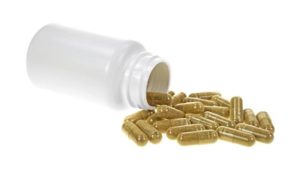Green tea is well known for its health benefits and the market for green tea and green tea products has never been better. However, according to several online sources, the European Food Safety Association (EFSA) is under renewed pressure from the European Commission to investigate the safety of green tea catechins.
 Norwegian, Swedish, and Danish food safety authorities have requested the investigation, citing high levels of the active substance EGCG (epigallocatechin-3-gallate) in green tea extract supplements—much greater than those obtained from just drinking green tea. The Norwegian authority received several reports of adverse events linked with the supplements, largely concerning liver damage.
Norwegian, Swedish, and Danish food safety authorities have requested the investigation, citing high levels of the active substance EGCG (epigallocatechin-3-gallate) in green tea extract supplements—much greater than those obtained from just drinking green tea. The Norwegian authority received several reports of adverse events linked with the supplements, largely concerning liver damage.
EFSA’s review will look at the safety of green tea catechins from all food sources, including supplements and tea infusions. It expects to complete the assessment within 12 months.
The European Commission has asked the EFSA to provide levels of green tea catechins that do not pose a health risk to the general population, as well as groups such as children and pregnant women, reports nutraingredients.com. The report quotes an Italian botanical expert and managing director of Hylobates Consulting, Dr. Luca Bucchini:
“Clarity in this area is required, and it needs to come from an authoritative voice. EFSA has done very good work on botanicals on its own initiative, and it should have a pivotal role in this area.”
Botanicals are preparations made from plants, algae, or fungi that are applied for use in food supplements, cosmetics, and pharmaceuticals. In the case of food supplements, they are typically labeled as “natural foods,” which implies health benefits. However, many botanicals are pending authorization of such health claims.
In 2003, France and Spain enacted bans on certain green tea extracts and powders, responding to reports of liver toxicity dating back to 1999.
Sources: nutraingredients.com, National Health Federation
Tea Market
Get More Value from Your Tea: BRU Maker One
+41794574278
Jacque's Organics
(647) 804-7263